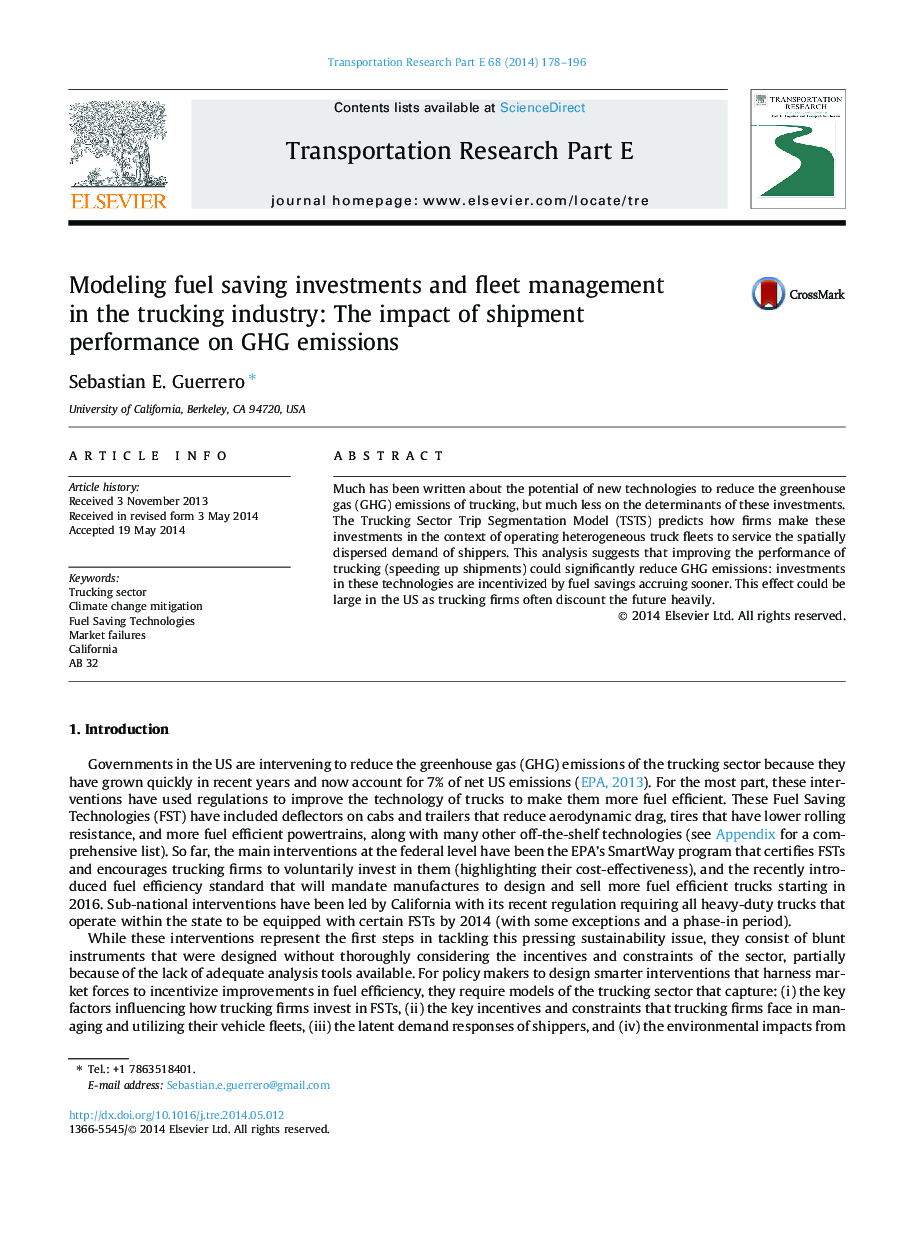| کد مقاله | کد نشریه | سال انتشار | مقاله انگلیسی | نسخه تمام متن |
|---|---|---|---|---|
| 1023321 | 1483022 | 2014 | 19 صفحه PDF | دانلود رایگان |
• The Trucking Sector Trip Segmentation Model predicts sector responses given operational factors.
• The utilization of vehicles throughout their services-lives is modeled endogenously.
• Investments in Fuel Saving Technologies are made in operational and economic context.
• Existing market and non-market failures dissuade investments in Fuel Saving Technologies.
• In some cases, improving shipment performance by 20% will reduce 1.5 MMTCO2eq/yr in CA in 2020.
Much has been written about the potential of technologies to reduce the greenhouse gas (GHG) emissions of trucking, but much less on the determinants of these investments. The Trucking Sector Trip Segmentation Model (TSTS) predicts how firms make these investments in the context of operating heterogeneous truck fleets to service the spatially dispersed demand of shippers. This analysis suggests that improving the performance of trucking (speeding up shipments) could reduce significantly GHG emissions: investments in technologies are incentivized by fuel savings accruing sooner. This effect could be potentially large in the US as trucking firms often discount the future heavily.
Journal: Transportation Research Part E: Logistics and Transportation Review - Volume 68, August 2014, Pages 178–196
